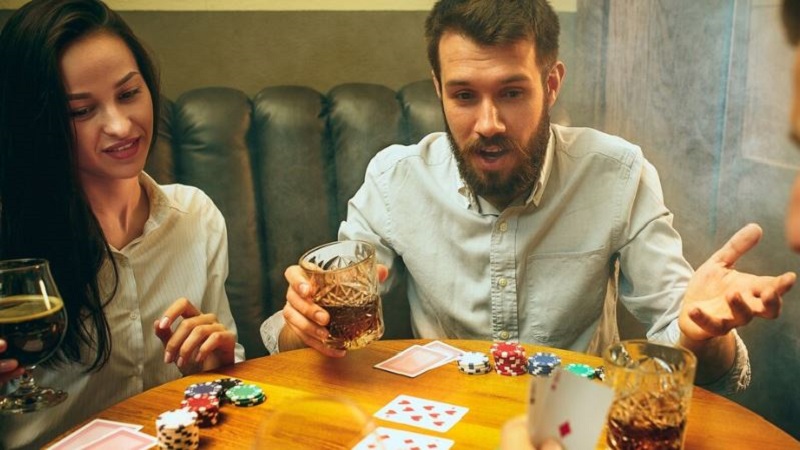Gambling can be an enjoyable pastime for many people. However, for some, it crosses the line into addiction and takes over their lives. Gambling addiction is a very real issue that affects over 2 million adults in the US alone.
The good news is that numerous resources exist to help those battling this condition. With the right support network and treatment program by Gametwist, people can overcome gambling compulsions and rebuild their finances, relationships, and wellbeing.
This guide covers the telltale signs of gambling addiction, its impacts, and the many options for support and treatment. Read on to learn how to recognize if gambling has become a problem in your or a loved one’s life, along with next steps for getting back on track.
Key Statistics on Gambling Addiction
- 2.6% of US adults are estimated to have a gambling disorder
- The rate is higher among youth, with 4-8% of college students qualifying for the diagnosis
- Problem gamblers have high rates of bankruptcy, divorce, job loss, and even attempted suicide
- 80-90% of gambling revenue comes from problem gamblers
Recognizing the Signs of Addiction
Gambling addiction is not simply about losing money or time spent gambling. Like any addiction, it begins to spiral out of control and dominate a person’s time, thoughts, and behaviors.
Some red flags to look out for include:
- Obsession with gambling and inability to stop despite negative consequences
- Lying to conceal gambling activities from loved ones
- Failed attempts to cut back or quit gambling
- Restlessness or irritability when not gambling
- Gambling to relieve anxiety, guilt, or feelings of helplessness
- Taking increasingly larger risks to try to win back losses
- Jeopardizing relationships or career due to gambling
If several of the above sound familiar, it may be time to seek help for a gambling problem. The sooner it is addressed, the easier it is to regain control before lasting damage is done.
Far-Reaching Impacts of Gambling Addiction
Gambling addiction can wreak havoc on all aspects of someone’s life, from relationships to career and financial health. It is linked to higher rates of mental health issues like depression and anxiety as well.
Some of the common repercussions of compulsive gambling include:
Financial Impacts
- Overdue bills and credit card debt
- Bankruptcy
- Foreclosures
- Legal fees
Personal/Social Impacts
- Stress, anxiety, and depression
- Isolation and loneliness
- Neglect of self-care
- Conflicts with loved ones
- Divorce
Career/Academic Impacts
- Poor work performance
- Job loss
- Dropping out of school
This makes seeking help imperative before the damage becomes irreparable.
Available Resources for Gambling Addiction
If you recognize signs of gambling addiction in yourself or someone you care about, know that you don’t have to handle it alone. Various resources exist, from support groups to professional counseling options.
Some of the help available includes:
Support Groups
- Gamblers Anonymous meetings for those with gambling compulsions
- Gam-Anon meetings for family and friends impacted by a loved one’s gambling
Professional Help
- Individual counseling or therapy
- Group counseling
- Residential inpatient treatment programs
- Medications to treat co-occurring disorders
Financial Assistance
- Credit counseling services
- Debt consolidation programs
- Personal bankruptcy
Support groups provide solidarity through sharing stories and experiences in a judgment-free zone. Therapy helps uncover the root causes driving gambling urges and develop healthier coping mechanisms. Financial help can assist in slowly restoring stability.
An integrated approach across these areas delivers the best results. The key is being ready to accept help and doing the difficult inner work to adopt new habits long-term.
Taking the First Step Toward Change
Deciding to seek help for gambling addiction is a courageous step. While the road ahead involves commitment and hard work, countless people have overcome gambling disorders to thrive in recovery.
Here is a step-by-step guide to getting started:
- Accept there is a problem. This requires painful honesty about how gambling has taken over and the harm caused. But acceptance is key to moving forward.
- Set a quit date. Pick a specific day in the very near future to officially stop gambling. This creates accountability.
- Remove temptations. Cancel casino memberships, block gambling sites on devices, limit cash availability. This eliminates easy access to feed the addiction.
- Find a support group. Locate a local Gamblers Anonymous chapter or research options for group therapy. Shared understanding is vital.
- Seek professional help. Make an appointment with a gambling addiction therapist or treatment program. An expert can help you uncover why you gamble and form healthier habits.
- Address financial impacts. Consult credit counseling to consolidate debts or meet with a bankruptcy attorney if needed. Handling money struggles takes pressure off.
- Lean on loved ones. Let family and friends know what you are facing and that you need their support. Isolation makes overcoming addiction even harder.
No matter how hopeless a gambling problem feels, countless people have turned their lives around for good. It requires courage, hard work, and refusing to give up. But with the abundance of resources available, you do not have to do it alone.
